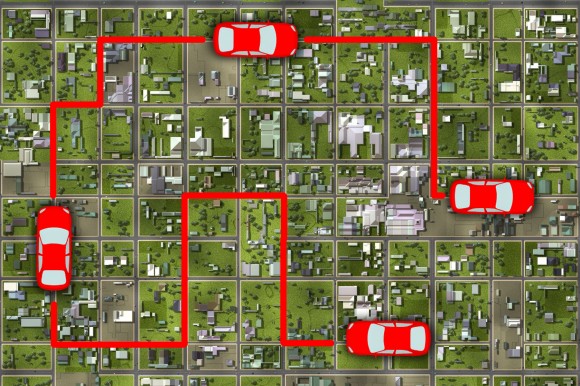U.S. drivers are open to purchasing usage-based auto insurance (UBI) policies, or “pay as you drive” insurance, and are even more interested when told their premiums would go down, according to a survey.
According Towers Watson, the results of its survey indicate that UBI is gaining momentum in the marketplace, with more consumers willing to let insurers monitor their driving habits with a telematics device in exchange for potential savings on their car insurance.
Most (79%) respondents to the UBI Consumer Survey indicated they either would buy a UBI policy or are willing to consider the concept, and if insurers would guarantee drivers’ premiums would not rise, that percentage increased to 89%.
The survey found that interest in UBI programs is highest among younger drivers (18- to 34-year-olds) with approximately two-thirds (66%) saying they would definitely or probably purchase a UBI policy. Roughly half (54%) of the participants who drive every day showed a strong interest in UBI.
“Many major auto insurers already offer UBI policies, though consumer adoption has been slower,” said Robin Harbage, global lead for Towers Watson’s UBI practice and its DriveAbility service offering, which provides insurers a way to go to market with a UBI product.
Progressive Corp., the fourth-largest U.S. auto insurer that has pioneered in UBI with its Snapshot product, recently said that getting customers to adopt the monitoring technology is a challenge.
Surveys of prospective Snapshot users have shown that “you get about 30 percent of people saying, ‘Yeah, why not?’; you get another 30 percent of people saying, ‘Maybe, I need to know more’; and you get about 40 percent of people saying, ‘No way in hell,'” Chief Executive Officer Glenn Renwick said recently.
Consumers are now becoming more familiar with UBI, and they like what they see. They are beginning to realize their data can actually be helpful while lowering their monthly premiums. Drivers’ views on UBI are rapidly evolving — they are embracing the technology and making it part of their driving experience,” said Harbage.
The survey also sought to gauge consumers’ interest in various additional services that can be enabled by the technology underlying UBI devices. Drivers indicated an interest in a number of these services, and 72% of those interested in UBI said they would be willing to pay for them. Drivers showed most interest in vehicle theft tracking (83%), automated emergency response (82%) and vehicle wellness reports (79%).
“Consumers’ interest in UBI-related value-added services presents a great opportunity for insurance companies,” said Harbage. “Insurers can begin thinking about de-commoditizing their products by incorporating these services into their UBI offering. They can really cater their products to the very specific needs of the market, and if done effectively, it will lead to growth and higher retention levels.”
Sixty percent of those interested in UBI programs said they would be willing to change their driving behavior. This was highest among younger drivers (76%), who represent the largest risk segment. When asked how they might change their driving behavior if a UBI device were to be installed in their car, respondents listed sticking to the speed limit (71%), keeping a safer distance from other vehicles (52%) and driving more considerately (49%) as the leading adjustments.
Consumers had the chance to voice their concerns about UBI programs. Their biggest worry has to do with money, as nearly half (49%) are worried their premiums would increase. Other concerns relate to privacy, such as insurers sharing consumer data (41%), fears that insurers will monitor and track driving destinations (42%), and apprehensions about insurers using data to invalidate claims (38%).
“These are understandable but not material enough to prevent further UBI adoption. In fact, these concerns actually create possibilities for insurers to design better UBI products,” said Harbage.
The Towers Watson UBI Consumer Survey was conducted between December 2012 and February 2013.
Was this article valuable?
Here are more articles you may enjoy.



 CFC Owners Said to Tap Banks for Sale, IPO of £5 Billion Insurer
CFC Owners Said to Tap Banks for Sale, IPO of £5 Billion Insurer  Insurance Broker Stocks Sink as AI App Sparks Disruption Fears
Insurance Broker Stocks Sink as AI App Sparks Disruption Fears  Former Broker, Co-Defendant Sentenced to 20 Years in Fraudulent ACA Sign-Ups
Former Broker, Co-Defendant Sentenced to 20 Years in Fraudulent ACA Sign-Ups  Judge Tosses Buffalo Wild Wings Lawsuit That Has ‘No Meat on Its Bones’
Judge Tosses Buffalo Wild Wings Lawsuit That Has ‘No Meat on Its Bones’ 

